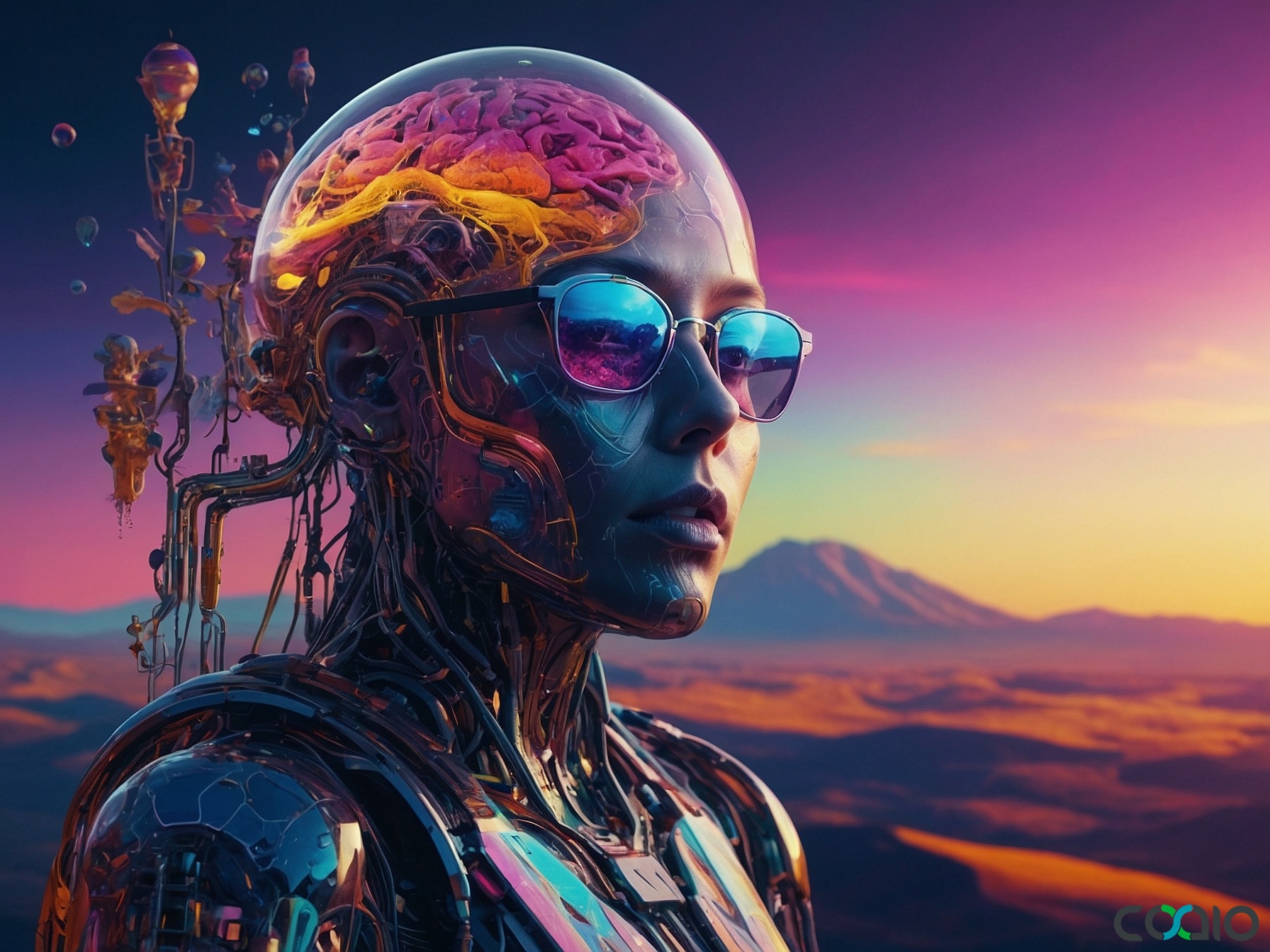
AI 기반 소프트웨어 진화: 혁신과 투자, 2025년 기술 환경을 형성하는 방법
As of July 15, 2025, the tech world is buzzing with transformative developments in software development, from AI advancements to strategic shifts in venture capital. This article dives into the latest news, exploring how these trends are reshaping the industry and offering insights for developers, startups, and investors. With AI playing a pivotal role in reliability engineering and major players like Meta reevaluating their approaches, the software ecosystem is evolving rapidly. We’ll also touch on funding surges and gadget enhancements that underscore the importance of adaptive technology strategies.
The Rise of AI in Reliability Engineering
In recent years, software reliability has become a cornerstone of digital infrastructure, evolving from reactive fixes to proactive solutions. A standout story from SD Times highlights Vibe Loop, an AI-native approach to reliability engineering that’s poised to revolutionize how we maintain complex systems. According to the report, traditional methods, inspired by Google’s Site Reliability Engineering (SRE) framework from nearly a decade ago, have improved observability and automation but still rely on reactive troubleshooting. Vibe Loop aims to flip this script by leveraging AI agents to predict and prevent issues before they escalate, potentially transforming uptime management into a more predictive discipline.
This innovation is particularly timely as businesses grapple with the demands of scaling software in a cloud-native world. For instance, the article notes that AI could address longstanding challenges in production systems, where human intervention often lags behind emerging problems. Read more about Vibe Loop’s potential impact. As companies adopt these AI-driven tools, the need for seamless integration and custom development becomes evident, making outsourced expertise a valuable asset for startups looking to stay competitive without overextending their in-house teams.
Venture Capital’s New Wave: Funding for Innovation
The venture capital landscape is undergoing its own transformation, with significant fundraises signaling renewed confidence in software and AI ventures. TechCrunch reports that Brian Singerman, formerly of Founders Fund, is raising over $500 million for a new fund called GPx, in collaboration with Lee Linden of Quiet Capital. This fund introduces a twist on the traditional VC model, with a substantial portion—potentially up to 50%—backed by Peter Thiel, co-founder of Founders Fund. This move not only underscores Thiel’s continued influence in tech investing but also hints at a more personalized approach to funding, possibly focusing on high-potential AI and software projects.
In a similar vein, former Sequoia partner Matt Miller has secured $355 million for his new fund, Evantic, with backing from Sequoia itself. These developments illustrate a broader trend where experienced investors are doubling down on emerging technologies, providing the capital needed for software innovation to flourish. Dive deeper into Singerman’s fund strategy and explore Miller’s fund details. For software developers and startups, this influx of funding means more opportunities for groundbreaking projects, but it also emphasizes the importance of robust project management and risk assessment to navigate the competitive landscape effectively.
Meta’s Shift from Open to Closed AI Models
Meta, once a champion of open-source AI, is reportedly pivoting towards a more closed approach, marking a significant philosophical shift. TechCrunch reveals that key figures in Meta’s Superintelligence Lab are discussing moving away from their powerful open-source model, Behemoth, in favor of proprietary developments. This change could stem from competitive pressures, regulatory concerns, or the desire to protect intellectual property in an increasingly crowded AI market. If implemented, it would represent a departure from Meta’s earlier strategy, which emphasized collaboration and accessibility to foster innovation.
The implications for software development are profound. Open-source models have democratized AI access, allowing smaller teams to build advanced applications without massive resources. A shift to closed models might limit this accessibility, potentially slowing innovation while prioritizing security and control. Learn more about Meta’s evolving AI strategy. In this context, businesses could benefit from partnering with specialized firms that offer tailored software solutions, ensuring that even non-technical founders can navigate these changes with expert guidance.
Gadget Updates and the Evolution of Consumer Tech
Beyond enterprise software, consumer gadgets are also advancing, with updates that enhance functionality and user safety. Ars Technica covers Pebblebee’s latest feature addition: a free SOS alert system for their Bluetooth trackers. This update stands out in a market where competitors like Apple’s AirTags lack such features, and Tile requires a subscription for similar functionality. By providing this update to existing devices, Pebblebee demonstrates how software enhancements can extend the lifecycle of hardware, making gadgets more versatile and user-friendly.
This trend towards regular, value-added updates highlights the intersection of software development and hardware innovation. In software terms, it underscores the need for ongoing maintenance and feature evolution, which can be resource-intensive for smaller companies. Check out the full story on Pebblebee’s SOS feature. As developers integrate AI and automation into these updates, the demand for efficient development processes grows, pointing to the advantages of outsourcing for cost-effective, high-quality results.
The Bigger Picture: Trends in Software Development
Looking across these stories, a common thread emerges: software development is becoming more AI-centric, investment-driven, and user-focused. The integration of AI in reliability engineering, as seen with Vibe Loop, promises to make systems more resilient, while VC funding injects vitality into innovative projects. Meta’s potential shift and gadget updates like Pebblebee’s SOS alert remind us that adaptability is key in a fast-paced industry. For startups and growth-stage firms, these trends emphasize the need for strategic planning, from competitor research to risk management, to capitalize on opportunities without getting bogged down in operational complexities.
In this evolving landscape, efficient software development practices are crucial. By leveraging external expertise, businesses can focus on their core ideas while outsourcing the intricacies of design, development, and project management. This approach not only reduces risks but also accelerates time-to-market, allowing innovators to thrive amid rapid technological changes.
As we wrap up this exploration of today’s tech news, imagine a world where your bold ideas take center stage, unhindered by the maze of software development hurdles. Picture founders, whether tech-savvy or not, channeling their creativity into groundbreaking products, supported by a network that handles the rest. That’s the essence of turning visionary concepts into reality—fostering innovation where ideas shine brightest, backed by seamless strategies that minimize pitfalls and maximize efficiency.
About Coaio
Coaio is a Hong Kong-based tech firm that specializes in outsourcing software development and building expert teams in Vietnam. We offer comprehensive services including business analysis, competitor research, risk identification, design, development, and project management, delivering cost-effective, high-quality software solutions tailored for startups and growth-stage companies in the US and Hong Kong markets. With our user-friendly designs and efficient tech management, Coaio helps you streamline your operations, reduce risks, and focus on your core vision, making it easier to bring innovative ideas to life without the usual hassles of in-house development.
 English
English
 Français
Français
 Español
Español
 廣東話
廣東話
 中文
中文
 日本語
日本語
 한국어
한국어
 العربية
العربية
 Deutsch
Deutsch

